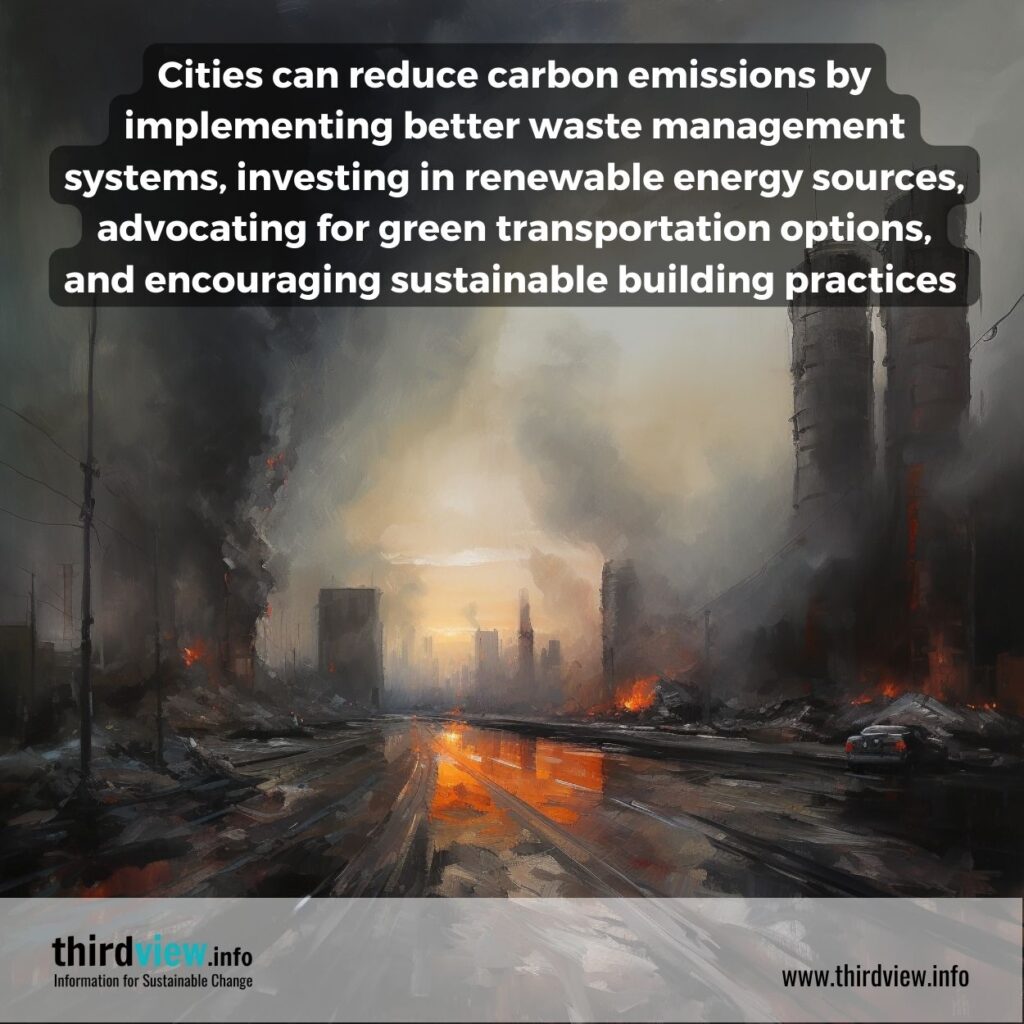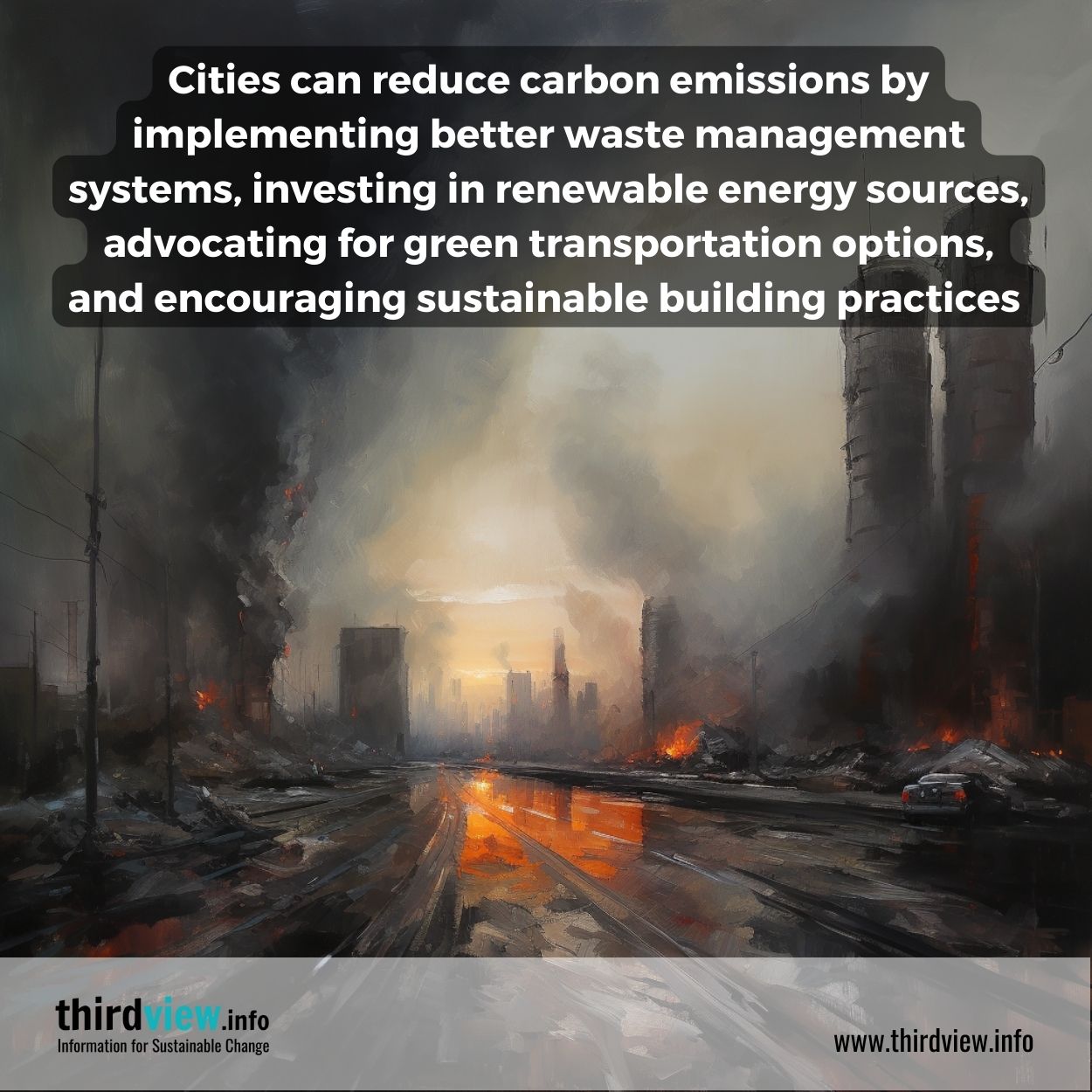As the world becomes more aware of the need to curb carbon emissions, cities are taking matters into their own hands. In this blog post, we’ll take a look at some of the ways cities are working to reduce their carbon footprint and become more sustainable.
Public Transportation
One of the most effective ways for cities to reduce their carbon footprint is by investing in public transportation. By providing residents with reliable and efficient public transportation options, cities can encourage people to leave their cars at home. This not only reduces traffic and congestion, but it also reduces emissions from vehicle exhaust.
In addition to investing in public transportation, cities can also encourage residents to use alternative modes of transportation such as biking or walking. Many cities have implemented bike-sharing programs and built dedicated bike lanes to make cycling a more viable option for commuters. By making it easier for people to get around without a car, cities can make a big dent in their carbon footprint.
Renewable Energy
Another way cities are working to reduce their carbon footprint is by investing in renewable energy sources. Solar panels and wind turbines are becoming increasingly common in urban areas as city leaders look for ways to reduce their reliance on fossil fuels. In some cases, cities are even generating more electricity than they need and selling it back to the grid. As renewable energy technology continues to improve, we can expect to see even more cities making the switch in the years to come.
Energy Efficiency
Another way cities can reduce their carbon footprint is by investing in energy efficiency. Making buildings more energy efficient can help reduce the amount of energy they consume. This, in turn, reduces the amount of carbon dioxide and other greenhouse gases that are emitted into the atmosphere. Many cities are starting to invest in energy efficiency programs to help combat climate change.
Recycling and Waste Reduction
Finally, another way cities can reduce their carbon footprint is by recycling and waste reduction. Recycling helps keep materials out of landfills where they decompose and release methane, a powerful greenhouse gas. Waste reduction helps reduce the amount of materials that need to be recycled or disposed of in landfills. Many cities are implementing recycling and waste reduction programs to help combat climate change.
Cities play a vital role in the fight against climate change. By investing in public transportation and renewable energy, energy efficiency, and recycling and waste reduction cities can make a big impact in reducing their carbon footprint. As more and more cities take steps to become more sustainable, we can hope that the world will start to see real progress in curbing emissions and slowing down climate change


